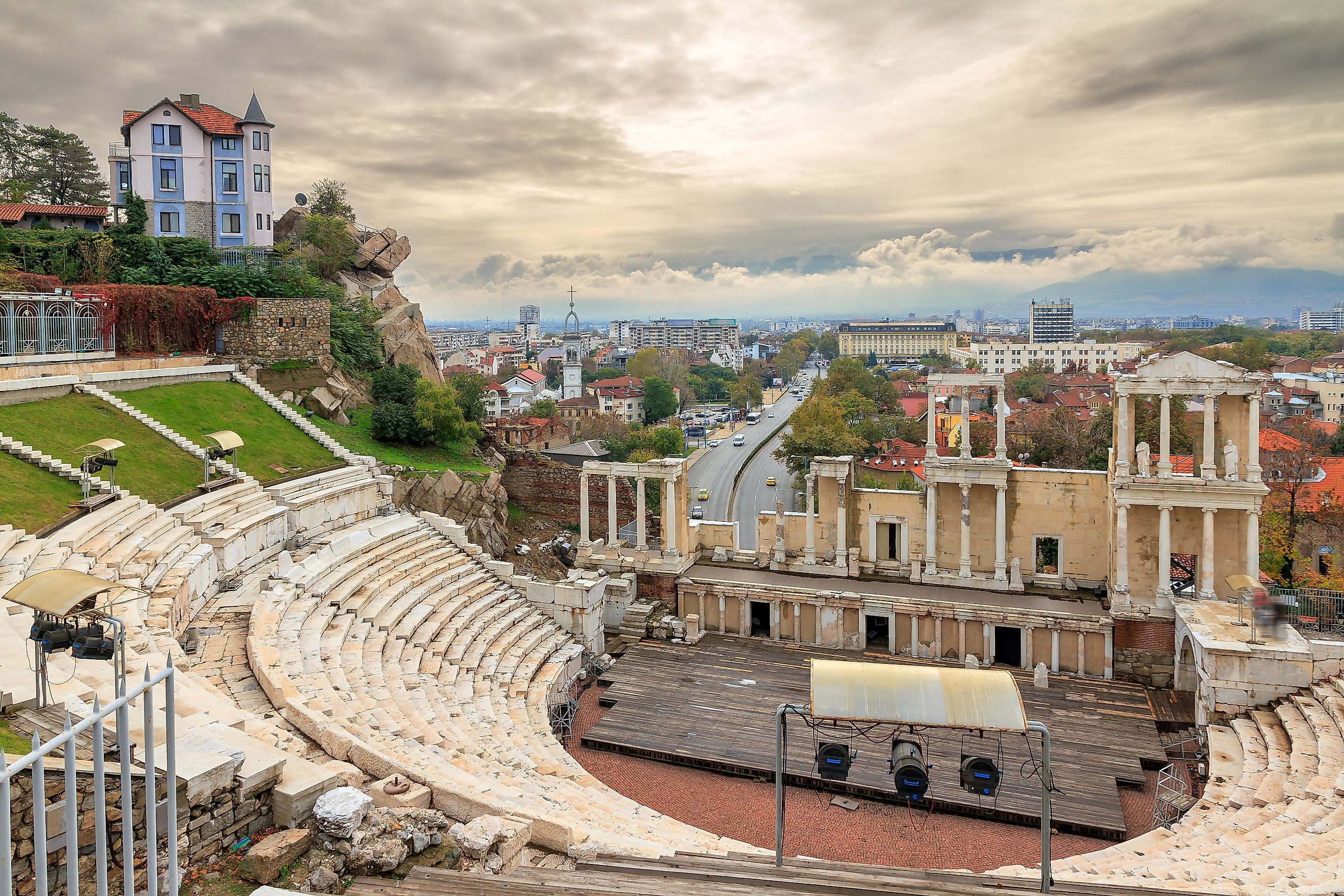
The Oldest Cities in Europe
Europe’s oldest continuously inhabited cities provide essential evidence of how human communities have evolved, adapted, and persisted over millennia. Archaeological excavations, historical texts, and comparative analyses of material culture reveal how geography, trade networks, and changing political powers shaped each city’s development.
This article guides you through ten such centers—each shaped by shifting empires, evolving trade routes, and successive waves of architectural innovation. Explore how the cave dwellings of Matera endure as a testament to Paleolithic-era settlements, how Cadiz preserves Phoenician maritime legacies, and how mythic Thebes intertwines with both legendary and historical narratives. Below are Europe's 10 oldest continuously inhabited cities.
10. Matera, Italy - 1000 BC

Matera, the capital of the Province of Matera in Basilicata, Italy, has a rich history dating back to the Paleolithic era, around the 10th millennium BC. Renowned for its rock-cut urban core, Matera is famed for the Sassi, two ancient cave-dwelling zones built into the cliffside. The city's complex urban structure includes the Civita, an elevated central area with the city's cathedral and administrative buildings, flanked by the Sassi districts of Sasso Barisano and Sasso Caveoso. The city has seen rule by various powers, including the Romans, Lombards, and Byzantines, each leaving a mark on its cultural and architectural heritage. In the 20th century, the Sassi were considered unfit for habitation until restoration efforts began in the 1980s. Matera was named a UNESCO World Heritage Site in 1993 and a European Capital of Culture for 2019.
9. Cadiz, Spain - 1100 BC
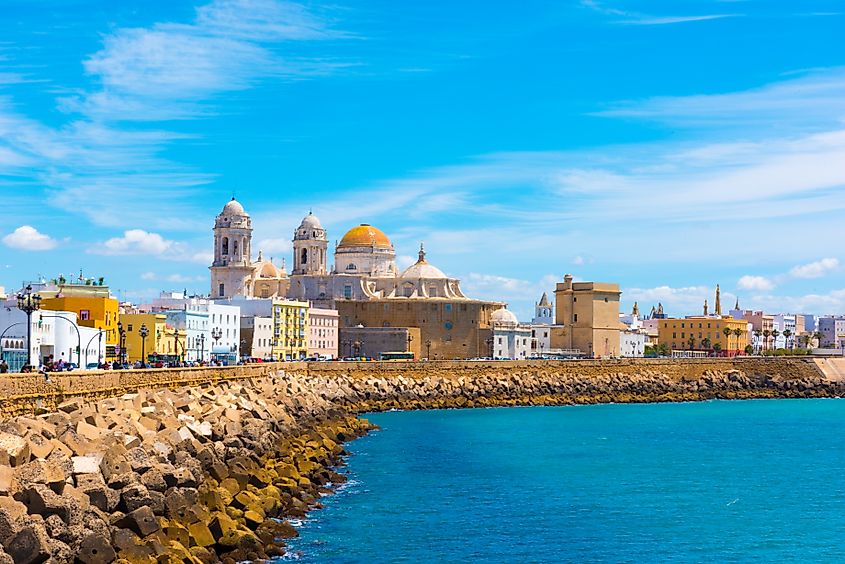
Cadiz, located in the southwest of the Iberian Peninsula, was founded around 1100 BC by Phoenicians from Tyre; it has served as a significant trading hub throughout history. The city enjoyed a monopoly on trade with the Americas in the 18th century through its port in the Bay of Cadiz. Characterized by narrow winding alleys and large plazas, the old part of Cadiz, within the remnants of the city walls, contrasts markedly with the newer areas which feature wide avenues and modern buildings. Cadiz is also noted for its historical landmarks and the University of Cadiz. The old town, referred to as the Casco Antiguo, includes diverse quarters such as El Populo, La Viña, and Santa María, showcasing a rich history that spans several millennia.
8. Nafplio, Greece - 1400 BC

Nafplio, a coastal city in the Peloponnese region of Greece, is the capital of Argolis and a significant tourist destination. Its history extends back to antiquity, playing a pivotal role as a major seaport during the Middle Ages under the Frankokratia, and later under Venetian and Ottoman rule. Nafplio was notably the second capital of the First Hellenic Republic and the Kingdom of Greece from 1827 to 1834. The city's name has evolved over the centuries from its ancient references in Egyptian records dating back to the 14th century BCE as npry, to various names during the Classical Antiquity and Byzantine periods. During Venetian and Ottoman rule, it was known as Napoli di Romania and Mora Yenişehir respectively. Geographically, Nafplio sits on a peninsula in the Argolic Gulf, marked by its historic architecture influenced by its diverse rulers. The city is characterized by colorful buildings, neoclassical styles, and modernist elements.
7. Chania, Greece - 1700 BC
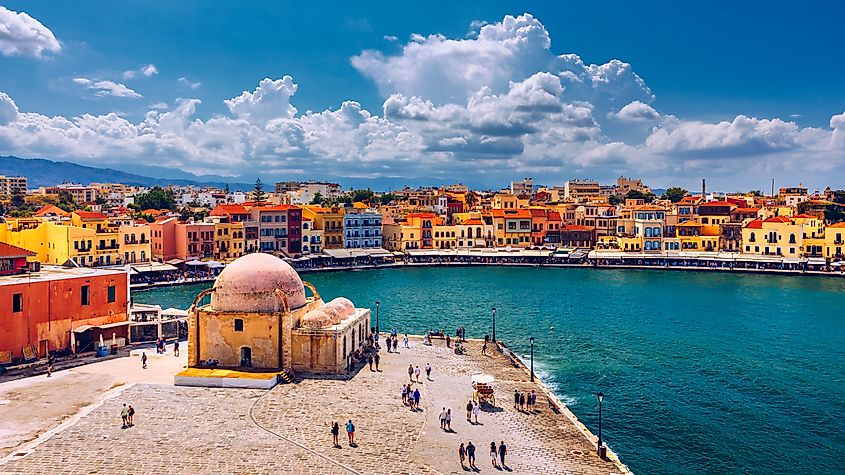
Chania, a city on the northwest coast of Crete, Greece, is the capital of the Chania regional unit. It is an ancient city that dates back to Minoan times, known from Linear B tablets as Ku-do-ni-ja. Historically called Cydonia, Chania was a significant city-state in Classical Greece and faced constant conflicts with neighboring Cretan city-states. Throughout its history, Chania was ruled by the Byzantines, Venetians, and Ottomans, each leaving a lasting impact on the city’s architecture and culture.During the Ottoman era, it was known as Hanya, a multicultural hub with diverse religious and cultural influences that shaped its historical landscape. Chania was the capital of the semi-autonomous Cretan State before joining modern Greece in 1913.
6. Shkodra, Albania - 2250 BC
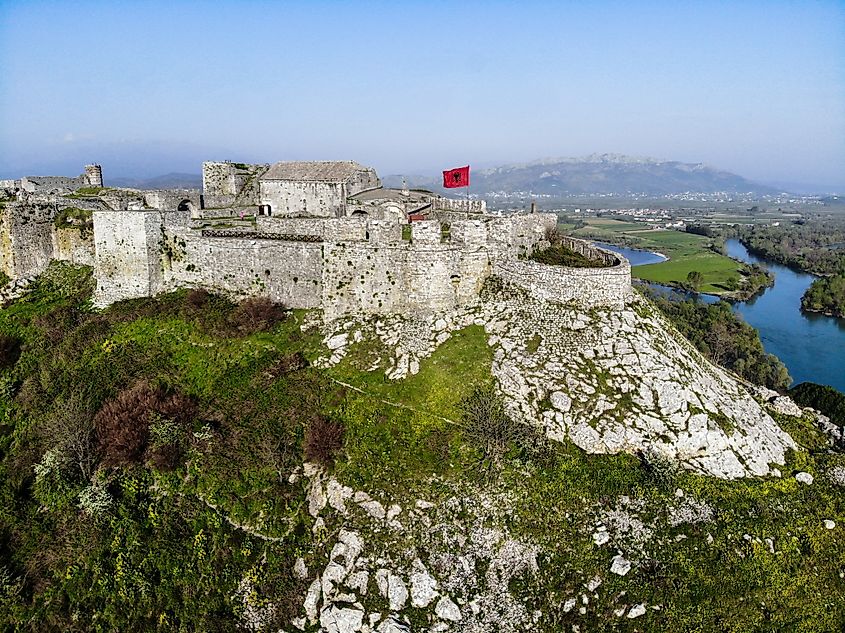
Shkoder, also known historically as Scodra or Scutari, is Albania's fifth-most populous city and has a history stretching back to the Early Bronze Age around 2000 BCE. Strategically positioned on the Plain of Mbishkodra, between Lake Shkoder and the Albanian Alps, it flourishes on a rich cultural and historical heritage. Originally an Illyrian capital, Shkoder became a significant city in the Balkans under Roman and later Byzantine rule. Today, it is celebrated as the cradle of the Albanian Renaissance. The city's architecture reflects a blend of mosques and churches, underscoring its longstanding tradition of religious tolerance.
5. Thebes, Greece - 5000 BC
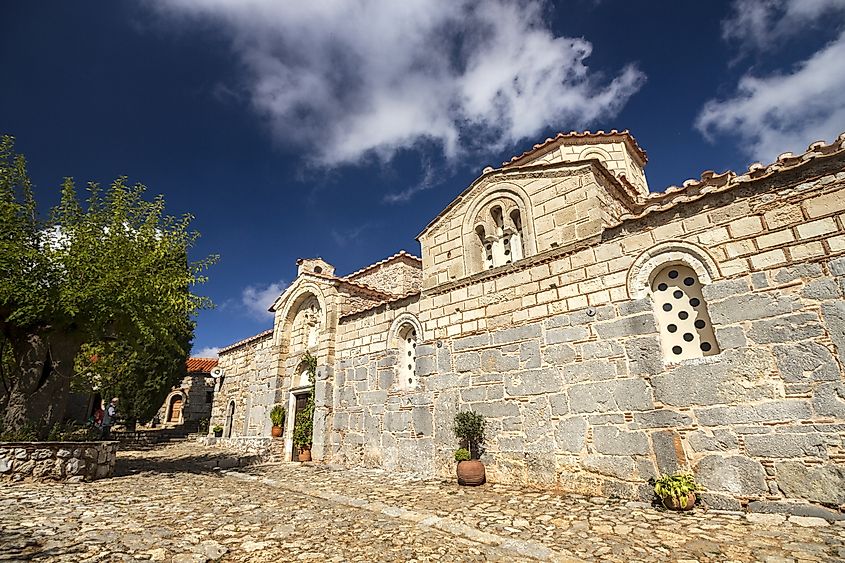
Thebes, a city central to Greek myth and history, is located in Boeotia, Central Greece, and ranks among the world's oldest continuously inhabited cities. It was prominent in myths involving figures like Cadmus, Oedipus, and Dionysus. Historically, Thebes was a significant Mycenaean center as evidenced by archaeological finds, including Linear B tablets. In antiquity, it was the dominant city of Boeotia and a leader of the Boeotian confederacy, often rivaling Athens. Notably, Theban forces led by Epaminondas defeated Sparta at the Battle of Leuctra in 371 BC, highlighting its military prowess.
However, Thebes' alliance with Persia against Athens and subsequent Spartan conflicts led to its temporary decline. It experienced a resurgence through the Sacred Band of Thebes but was ultimately destroyed by Alexander the Great in 335 BC. Despite its ancient obliteration, Thebes was rebuilt and thrived during the Byzantine era as a silk production center.
4. Larissa, Greece - 5000 BC
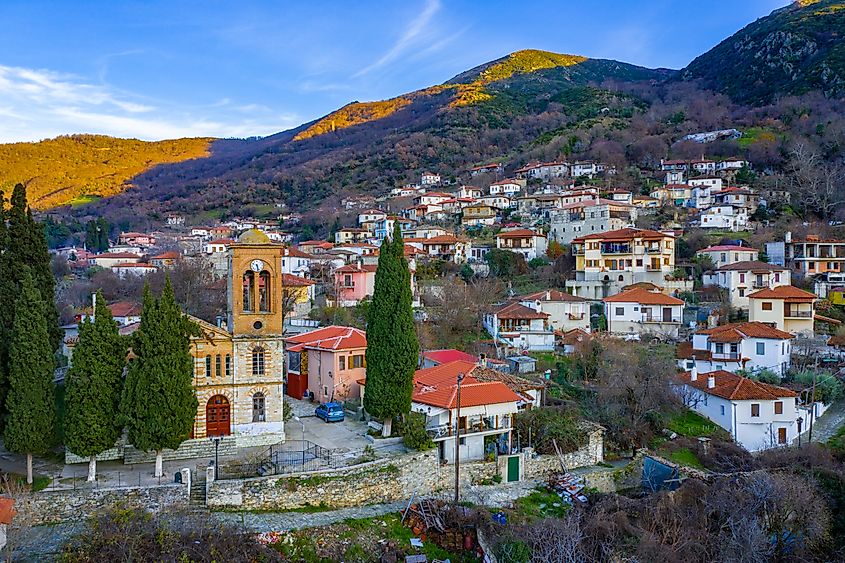
Larissa, the capital of the Thessaly region in Greece, stands as the fifth-most populous city in the country with a population of 148,562. Rich in history and legend, it is reputed as the birthplace of Achilles and the site of Hippocrates' death. Known in Greek mythology as a city founded by Acrisius and inadvertently killed by his grandson, Perseus, Larissa was an important city-state in ancient times. It served as a significant agricultural hub known for its horse breeding. Today, Larissa remains a key commercial, transportation, educational, and agricultural center in Greece, strategically linked to major cities and ports through robust road and rail networks.
3. Athens, Greece - 5000 BC

Athens, the capital of Greece, is one of the world's oldest cities with a recorded history spanning over 3,400 years and human presence since between the 11th and 7th millennia BC. Named after Athena, the goddess of wisdom, classical Athens was a powerful city-state and a cradle of democracy, arts, education, and philosophy, influencing the European continent, especially Ancient Rome. Today, Athens is a vibrant metropolis, blending historical sites with modern living. It boasts landmarks like the Acropolis and Parthenon and is a cultural hub with numerous museums, including the Acropolis Museum and the National Archaeological Museum. Athens also hosted the first modern Olympic Games in 1896 and again in 2004.
2. Argos, Greece - 5000 BC
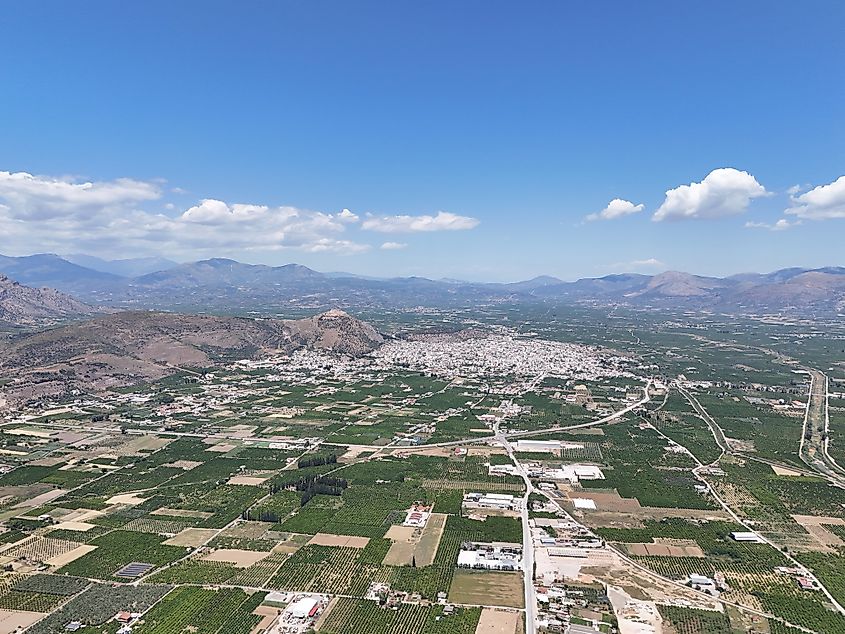
Argos, located in Argolis, Peloponnese, Greece, holds the distinction of being the oldest continuously inhabited city in Europe, with settlements dating back 7,000 years. It serves as a significant urban center in Argolis, surpassing even Nafplio, the prefectural capital, in population. Following a 2011 administrative reform, Argos became part of the municipality of Argos-Mykines. The city is situated 11 kilometers from its historic port, Nafplion. Argos's rich history is complemented by its agricultural economy, primarily revolving around local produce.
1. Plovdiv, Bulgaria - 6000 BC
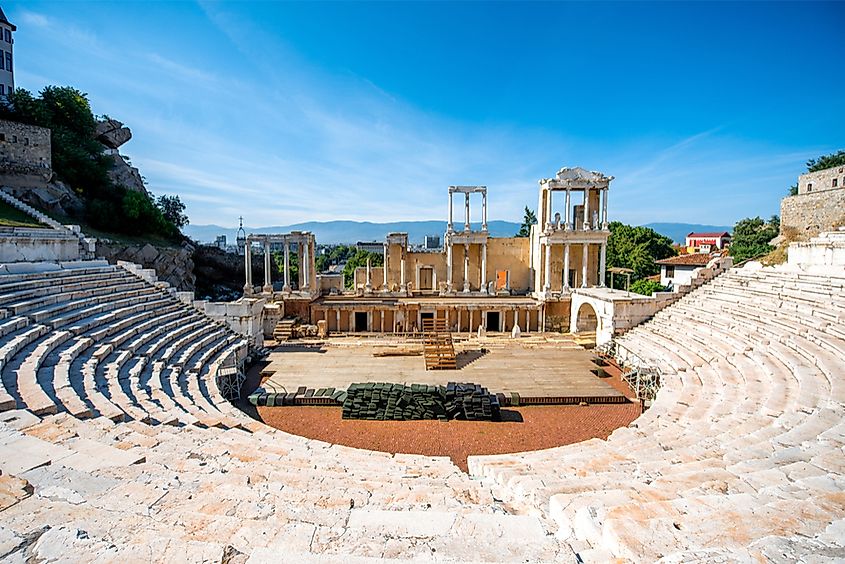
Plovdiv, Bulgaria, with its historical depth as Europe's oldest continuously inhabited city, remains a vital cultural and economic hub. Known for its picturesque setting across the Maritsa River and encircled by seven syenite hills, the city traces its origins to the 6th millennium BCE. Formerly known as Philippopolis, it was founded by Philip II of Macedon in 342 BCE and has seen varied control from Thracians, Macedonians, Romans, and Ottomans. Today, Plovdiv is recognized for its Roman theater, diverse architecture from different eras, and vibrant cultural scene, having been named the European Capital of Culture twice, in 1999 and 2019. The city's rich history is complemented by its role as a major economic and educational center in Bulgaria.











